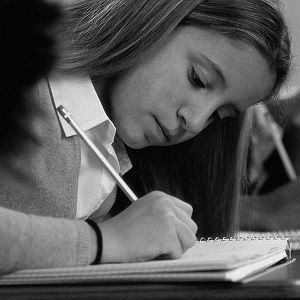Why collaboration is key to the next stage of school reform
In 1996 Tony Blair put “education, education, education” at the heart of his programme for government. After almost 20 years of profound social and economic change, they remain sound principles for office. But while the goal of a world class...
In 1996 Tony Blair put “education, education, education” at the heart of his programme for government. After almost 20 years of profound social and economic change, they remain sound principles for office. But while the goal of a world class school system should continue to animate social policy today, the toolkit employed to achieve it urgently needs updating. Our report argues that over the next 15 to 20 years, schools should strive to become places of dialogue, adaptation and self-generated innovation, guided by a philosophy of stakeholder consent.
Today the evidence shows that trust, collaboration and empowerment underpin the work of the highest performing schools. On a day to day level, this means enabling parents and young people to play a full and meaningful role of their school. It means creating opportunities for teachers to receive support and feedback from fellow professionals and continuous training via peer networks. And it means strengthening the bonds between schools and communities which anchor their work as public institutions.
Since New Labour the dynamic of schools policy has swung between the market and state. Competition was increased by devolving more powers to parents and opening up performance data to create bottom up pressure for improvement. Yet national government has never been entirely hands off, either. Centrally administered targets laced the education ‘quasi-market’ with a dirigisme that continues today. Under the coalition, Whitehall’s role has become more disempowering, aggressively promoting academy conversion with little pressure to consult with parents or staff. Meanwhile, sponsor bodies which have taken over the running of schools have few responsibilities for community engagement. It could not be further from the idea of schools strongly rooted in their localities.
It would be churlish to deny that many of these innovations have led to improvement. The experience of going to school in Britain today is qualitatively different to what it was in the pre-New Labour period, and almost exclusively for the better. But this method of achieving consistently good standards has not been without costs. For one, ‘choice and exit’ has acted as a substitute for broader parent empowerment and democratic engagement within schools. Second, incentives to focus on parent choice means many schools have not kept up with the turn towards ‘people power’ at a time when the role of citizens is expanding in public services as a whole. Thirdly, targets and markets have too often implied a conflict between the interests of external stakeholders and the interests of the school workforce. Finally, it provides little account of the ways in which local communities are bound up with the outcomes schools create.
It would take many years to unpick the incentives which militate against the relationships, reciprocity and cooperation which sustain high performance in schools. Shifting the system from ‘good’ to ‘great’ means rethinking the environment in which schools do their work and the way they achieve their outcomes in partnership with local partners, the middle tier and central government. It would undoubtedly encounter opposition from those who view any attempt to move away from high stakes and heavy handedness as evidence of dumbing down.
To kick start the process, the government should publish a ‘Constitution for the English School system’, setting out the overarching principles, values and objectives of the school system for today. Learning from the development of the NHS Constitution this document would define what it means for schools to be strong public interest institutions and translate this into rights and expectations for all school stakeholders. And like its precursor in health, the Constitution would develop out of a phase of consultation on what it means to be a good school.
Robert Tinker is the author of Stakeholder Schools: why collaboration is key to the next stage of school reform. You can read the full report here.

